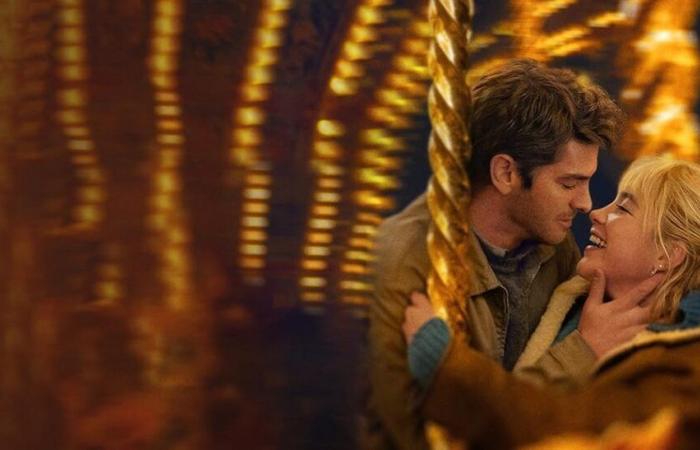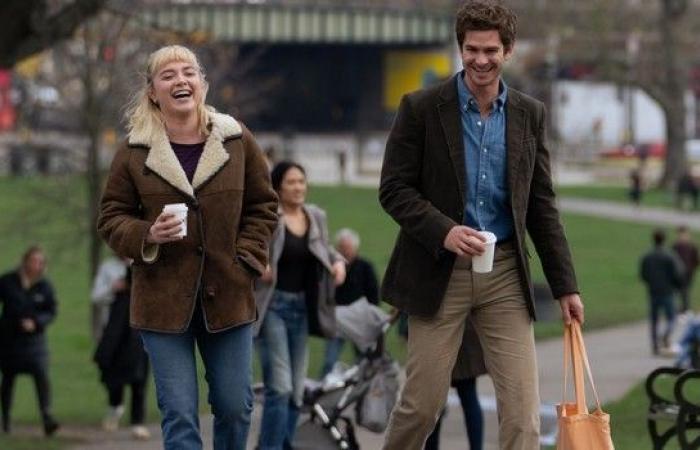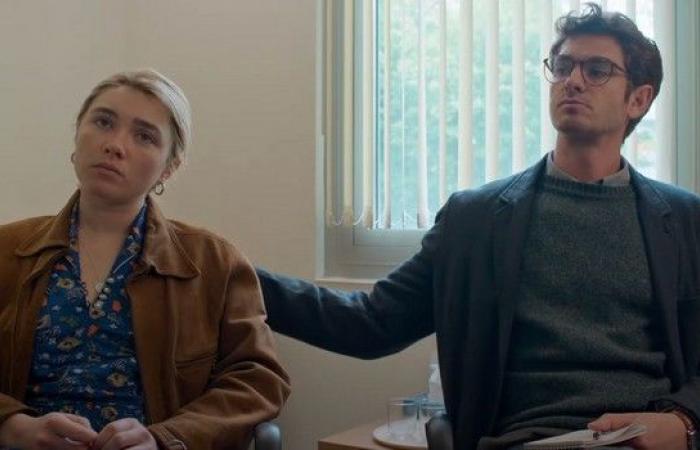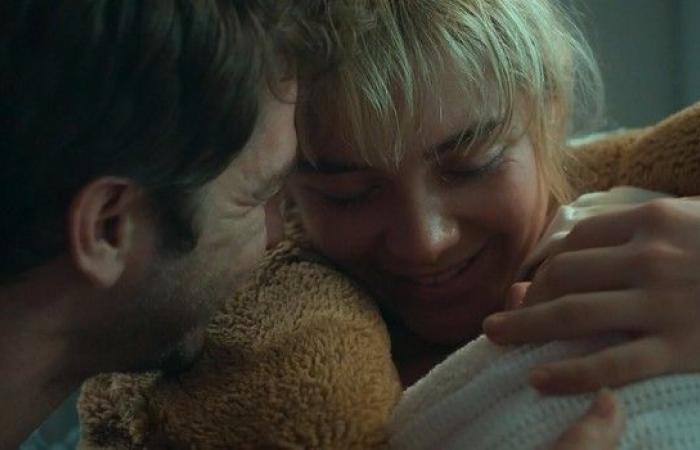Preceded by a great wait from its duo of actors, Love in the present (We Live in Time) is intended to be a romantic drama ticking all the boxes of the chronicle seeking emotion at all costs, fortunately well conveyed by Florence Pugh and Andrew Garfield.
Presented at the Toronto Film Festival last September, Love in the present (We Live in Time in VO) was preceded by a certain expectation. First of all because this romance is intended to be rather sexy on paper by placing the excellent Florence Pugh (Midsummer, Don’t Worry Darling, Black Widow) et Andrew Garfield (The Amazing Spider-Man, The Social Network, You will not kill) as soul mates. But also because the film produced by Studiocanal and A24 sees the reunion between the actor and John Crowley, the director of Boy A.
But above all, Love in the Present generally avoids the marshmallow of the traditional rom-com from its first minutes, introducing several temporal leaps and as many ellipses over a handful of years. The goal: to lead us to contemplate slices of the life of the Almut-Tobias couple, from their accidental meeting to a permanent struggle for their future.
One is the talented chef of a restaurant, the second a newly divorced data analyst. During a chance meeting in the middle of a road accident, these two souls will find each other and build a relationship, the structure of which will be made shaky by the news of ovarian cancer. A constant fight to live love in the present.
Love (and alchemy) in the present
While the broken timeline may seem frustrating at first, the plot makes good use of this artifice to better challenge the viewer about the destiny of the couple. A way of avoiding any classicism in the unfolding of what resembles a completely classic rom-com for a good hour, after Almut knocks down Tobias at the wheel.
Right away the genius idea of Love in the present answers… present via the casting of Andrew Garfield and Florence Pugh. Now accustomed to XXL projects, seeing the couple of actors share a certain alchemy and be as comfortable in moments of lightness (the first dinner, the first romantic emotions, etc.) as in drama would almost automatically lead to cinematic validation .
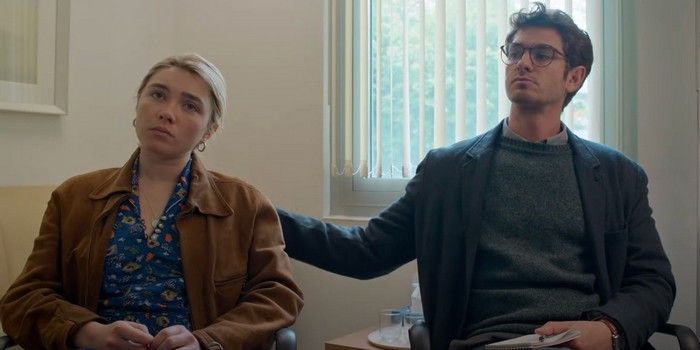

However, something will quickly get stuck in Love in the present : in addition to its narration operating back and forth without causing the necessary attachment that the weight of the years or chronological evolution usually generates (the BA BA of narrative progression), the shift of the story towards a fight with cancer ultimately serves as an emotional gimmick.
When pathos supplants emotion
After an episode of relapse (when, how and with what predictions, all this will be avoided given that neither the scenario nor the characters seem to be interested in these questions), Love in the present displays a program in automatic pilottrend “we want to make people cry in the cottages”. A contract fortunately not shared by the casting, absolutely impeccable from the first to the last scene, preferring authenticity to the narrative highlight of the story.
The most blatant example will undoubtedly be the global invisibility of Almut and Tobias’ child. : firstly at the heart of a central problem of the couple to know if parenthood would be reciprocal, the question will also be evacuated by the power of the ellipse to make this character an accessory supposed to bring the necessary gravitas.
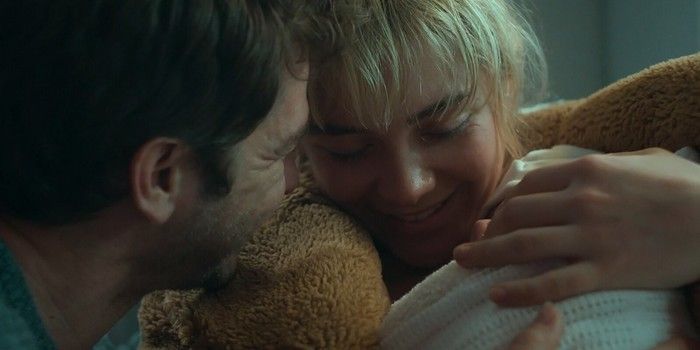

John Crowley knows how to highlight the nuanced performances of his formidable actors, but in a modest staging never fully filming the carnal dimension of the couple or never offering a real point of view, Love in the present annihilates any sense of urgency in life. A height therefore, especially when one of the pivotal moments is intended to be the shearing of a Florence Pugh giving herself to the camera, or even a final competitive move for the Bocuse d’Or.
No tears outside the screen
Should we stop living while fighting carcinoma? Or enjoy every second despite our failing health? A resolutely binary character therefore dominates in Love in the presentthe film however having the merit of avoiding a resolution within the constraints of the genre, despite the fact that the entire project tends towards this point of convergence. Here again, the impression of prefabricated emotion dominates in this drama which is too programmatic to convince. Fortunately, Florence and Andrew remain who we could follow for hours. Not enough to transcend the project, however!
Love in the Present will be released in cinemas on January 1, 2025
avis
5
tears without the marrow
Despite its duo of actors that we would like to follow to the ends of the earth, Love in the Present deviates from its lachrymal desires by the pathos which contaminates this quickly highlighted romantic chronicle. A chronological explosion which converges without gravitas towards an expected finality, fortunately well supported by the excellent Florence Pugh and Andrew Garfield…the true qualitative guarantees of Love in the Present!

